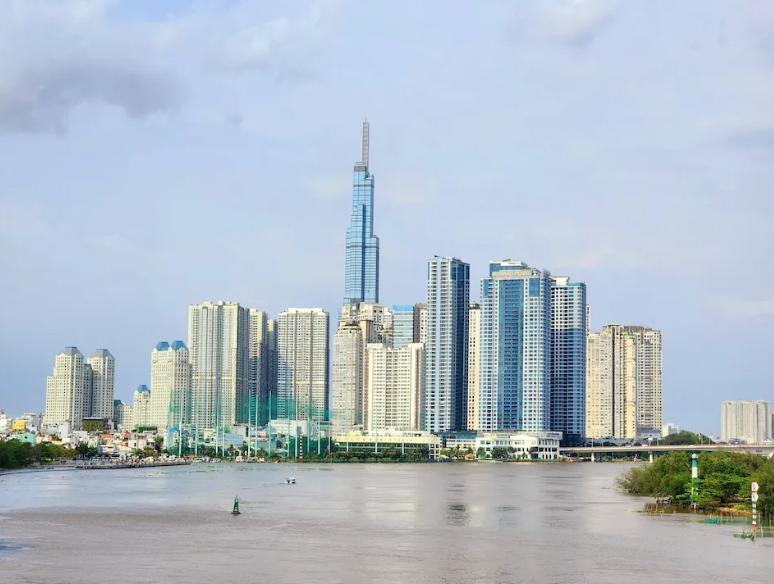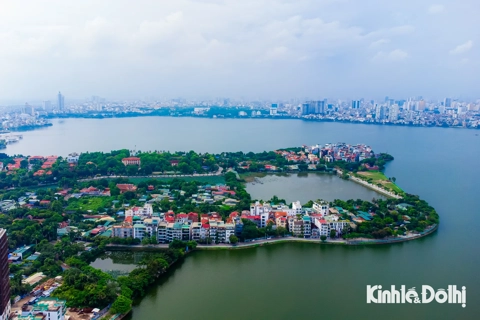National Assembly ratifies int’l financial center project
The financial center is expected to be among the world’s top 75 by 2035 and in the top 20 by 2045.
THE HANOI TIMES — Vietnam will establish an international financial center with locations in both Ho Chi Minh City and Danang, which will include controlled testing of digital assets and sandbox mechanisms, according to a resolution passed by the National Assembly.

Ho Chi Minh City. Photo: Mau Dung/The Hanoi Times
Approved on the morning of June 27, the resolution on the development of an international financial center in Vietnam was backed by more than 93.5% of delegates. It will take effect on September 1.
The center will be developed with a unified management approach and tailored financial products that leverage the unique strengths of each city.
In Ho Chi Minh City, it will focus on developing capital markets, banking, monetary markets, fintech sandboxes, and innovation in the financial sector. It will also establish specialized exchanges and new trading platforms.
In Danang, the center will prioritize green finance, fintech applications, and digital services. The city will pilot controlled trials of digital assets, digital currencies, and payment systems while attracting investment and remittance funds and small-to-medium-sized fund management companies.
Both cities have already begun preparing human resources, infrastructure, and investment promotion activities in coordination with strategic financial investors to build and operate the international financial center.
The resolution outlines several special policy groups to support the development of the center, focusing on foreign exchange, banking, tax incentives, capital market development, finance, land, labor, and employment. It also includes a controlled pilot mechanism for technology-based financial services (fintech) and innovation, as well as the development of commodity exchanges and other markets.
Investment projects in priority sectors within the center, for example, will be eligible for land lease terms of up to 70 years. For other sectors, the land use term will not exceed 50 years. Foreigners working at the international financial center will be exempt from personal income tax until the end of 2030.
Products offered within the center will include the establishment of commodity and derivative exchanges, carbon credits, cultural and artistic products, rare metals, and green financial instruments.
New investment projects in priority sectors will be subject to a 10% corporate income tax rate for 30 years, including a maximum four-year tax exemption and a 50% reduction for the subsequent nine years. For non-priority sectors, the corporate income tax rate will be 15% for 15 years, with a maximum two-year exemption and a 50% reduction for the subsequent four years. Vietnam's standard corporate tax rate is 20% for most business types.
A key issue in developing the center is a dispute resolution mechanism for investment and business activities. Parties may use dispute resolution procedures under Vietnamese law, international arbitration, foreign courts, Vietnam-based arbitration, or international arbitration centers associated with the financial center.
Finance Minister Nguyen Van Thang in his report to the National Assembly before the vote noted that, during the drafting process, the government had anticipated risks associated with creating trading platforms and exchanges, including speculation, price manipulation, and asset bubbles. Therefore, alongside strong and transparent regulatory mechanisms, a comprehensive legal framework will be developed to monitor all trading activities.
He added that the government will continue to study related regulations on capital flow control, anti-money laundering measures, and flexible liquidity management tools to be included in upcoming decrees.
Vietnam aims to establish an international financial center in Ho Chi Minh City and Danang in 2025. By 2035, the center is expected to rank among the world’s top 75 financial centers and, by 2045, among the top 20.












